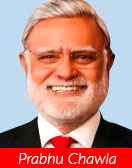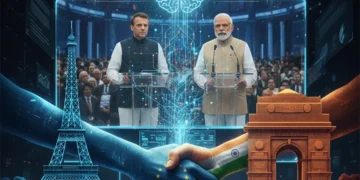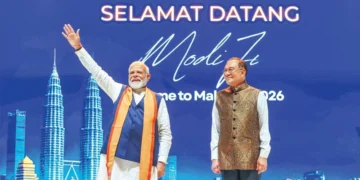 In the neon-drenched canyons of New York City, where skyscrapers pierce the heavens like defiant spears, a seismic shift has occurred. It echoed the thunderous collapse of empires past.
In the neon-drenched canyons of New York City, where skyscrapers pierce the heavens like defiant spears, a seismic shift has occurred. It echoed the thunderous collapse of empires past.
Last week, Zohran Kwame Mamdani, a 34-year-old fiery democratic socialist, stormed to victory as the second-youngest Mayor in the city’s storied history. Born to an Indian Hindu mother, filmmaker Mira Nair, and a Ugandan Muslim father, academic Mahmood Mamdani, this son of immigrants didn’t just win an election. He obliterated the remnants of Trumpism in its spiritual heartland. With 50.4 per cent of the vote, Mamdani crushed former Governor Andrew Cuomo, running as a desperate Independent, and Republican Curtis Sliwa.
This wasn’t a mere ballot-box triumph. It was a brutal exorcism of Donald Trump’s personalised politics, his toxic brew of division, and his so-called ‘Trumpian economics’. Ironically, in this very city, where extreme terrorists brought down the Twin Towers on September 11, 2001, killing nearly 3,000 Americans and others in an act of unimaginable horror, voters have chosen to repose unyielding faith in multiculturalism. As the confetti fell and the crowds roared, one truth crystallised. America’s flirtation with autocratic individualism is unravelling, and Trump’s plummeting acceptance is the harbinger of his inevitable fall. Trump’s rise in 2016 was a carnival of chaos. He peddled fear as policy and identity as weaponry. He ascended on the backs of the dispossessed, promising walls against ‘the others’ and tax cuts for the elite disguised as populism. But less than a year into his second term, the cracks are widening into chasms.
Mamdani’s victory, coupled with Democratic sweeps in other key races, exposes the fragility of Trump’s grip. It’s a national referendum on the man’s corrosive legacy. Voters in the nation’s largest city, a microcosm of America’s diversity, rejected Trump’s exclusionary toolkit with visceral force. Mamdani turned the race into a personal battleground of identities, where heritage became both shield and sword. However, this very emphasis on leftist ideals could exacerbate national divisions. Mamdani’s policies threaten to weaken the fight against illegal immigration and balloon expenditures on social measures, potentially straining the city’s and the country’s resources at a time when prudence is paramount.
The campaign devolved into a raw clash of visions, with both men hurling barbs that laid bare the soul of American politics. Trump, ever the provocateur, attacked Mamdani’s identity with the subtlety of a sledgehammer. In a Truth Social rant days before the election, Trump labelled Mamdani a “self-professed Jew hater” and declared that “any Jewish person who votes for him is a stupid person”. It was classic Trump who stoked religious and ethnic fears to rally his base. He implied that Mamdani’s Muslim heritage made him inherently suspect. Trump doubled down, accusing Mamdani of embodying “radical left identity politics that will destroy New York”, tying him to supposed anti-American sentiments.
Cultural firepower
It was personal, vicious, and utterly predictable – a reflection of Trump’s worldview where diversity is a threat, not a strength. Mamdani fired back with eloquence and cultural firepower that dismantled Trump’s fortress of exclusion. In rally after rally, he invoked his biracial, interfaith roots as proof of America’s promise. “My mother is Hindu, my father Muslim – I am the America Trump fears.” But Mamdani’s masterstroke came in channelling historical giants and cultural icons to eviscerate Trump’s narrow nationalism. Drawing from Jawaharlal Nehru, India’s first Prime Minister, Mamdani quoted the Independence leader’s famous ‘Tryst with destiny’ speech. Adapting it to the American context, Mamdani thundered, “We build a noble city where all – Hindu, Muslim, Jew, Christian, atheist – dwell in unity, not the walled-off dystopia Trump peddles.” It was a direct rebuke to Trump’s ‘America First’ isolationism, invoking Nehru’s vision of inclusive democracy to highlight how Trump’s personalised rule fosters fragmentation.
To drive the point home, Mamdani wove in cultural threads that resonated with immigrant communities. At his victory celebration, as the crowd erupted, the Hindi song ‘Dhoom machale’ from the Bollywood film Dhoom blasted through the speakers. This fusion of Nehru’s idealism and Bollywood’s vibrancy wasn’t gimmickry. It was a powerful narrative that mobilised South Asian, Muslim, and progressive voters, turning identity from a liability into a landslide catalyst. It was Mamdani’s masterclass in marketing.
Democratic resurgence
Mamdani’s triumph doesn’t stand alone. It’s part of a broader Democratic resurgence that spells doom for Trump’s authority. In Dearborn, Michigan, Abdullah Hammoud, a Lebanese-American Muslim, secured reelection as Mayor with a commanding margin, becoming a beacon for Arab-American communities weary of Trump’s foreign policy blunders. Meanwhile, in Buffalo, New York, Democrat India Walton claimed victory as Mayor. These electoral successes – three Democratic Mayors, two of them Muslim – represent a stinging rebuke to Trumpism in urban strongholds.
Undoubtedly, the damage to Trump’s authority is profound and multifaceted. Domestically, these losses weaken his grip on the Republican Party, where murmurs of dissent are growing louder. Midterm elections loom in 2026. With Democrats now controlling key cities and governorship like Abigail Spanberger in Virginia and Mikie Sherrill in New Jersey, the opposition has momentum. These victories embolden Democrats to counter Trump aggressively, framing every policy fight as a battle against his “autocratic individualism”.
Still, this cultural triumph masks potential pitfalls. Mamdani’s expansive social agenda, including robust support for undocumented immigrants and ambitious welfare expansions, could undermine efforts to curb illegal crossings, inviting chaos at the borders, and fuelling Trump’s narrative of Democratic weakness on security. Mamdani’s softening stances on immigration enforcement might erode public trust in border security which would provide Trump ammunition to reclaim lost ground.
Diminishing control
Within the executive branch, Trump’s influence wanes as these local leaders push back. Mamdani has already vowed to make New York a “sanctuary” against federal overreach. He has challenged Trump’s deportation plans and economic policies head-on. This resistance, if sustained, could cascade, diminishing Trump’s control over global economics and diplomacy. Trump’s bombastic trade wars and isolationist stances rely on unified domestic support. With major cities in revolt, his leverage in negotiations with China or Europe evaporates. Allies abroad, already wary of his volatility, will see these defeats as evidence of his declining clout, making it harder to bully or bargain on the world stage.
In less than a year, Trump’s second inning has devolved from triumphant return to desperate scramble. It proves that in a robust democracy, autocratic individualism – where one man’s ego dictates policy – crumbles under the weight of collective will. But the victors, too, cannot afford complacency. Mamdani’s leftist vision, if not balanced, risks fracturing the very diversity it celebrates, turning unity into polarised silos.
Looking forward, this could herald a Democratic renaissance, with figures like Mamdani inspiring a new generation to reclaim America’s pluralistic soul, provided they navigate the downsides wisely. If Democrats sustain this momentum while balancing ideology with fiscal and security prudence, the midterms could deliver a congressional flip. It would dilute Trump’s agenda and hasten his political obsolescence. The golden tower may still gleam, but its foundations are rotting. In the end, Trump’s fall won’t be with a bang, but with the quiet roar of diverse voices singing songs he could never understand – a fitting elegy for an era of excess.


























